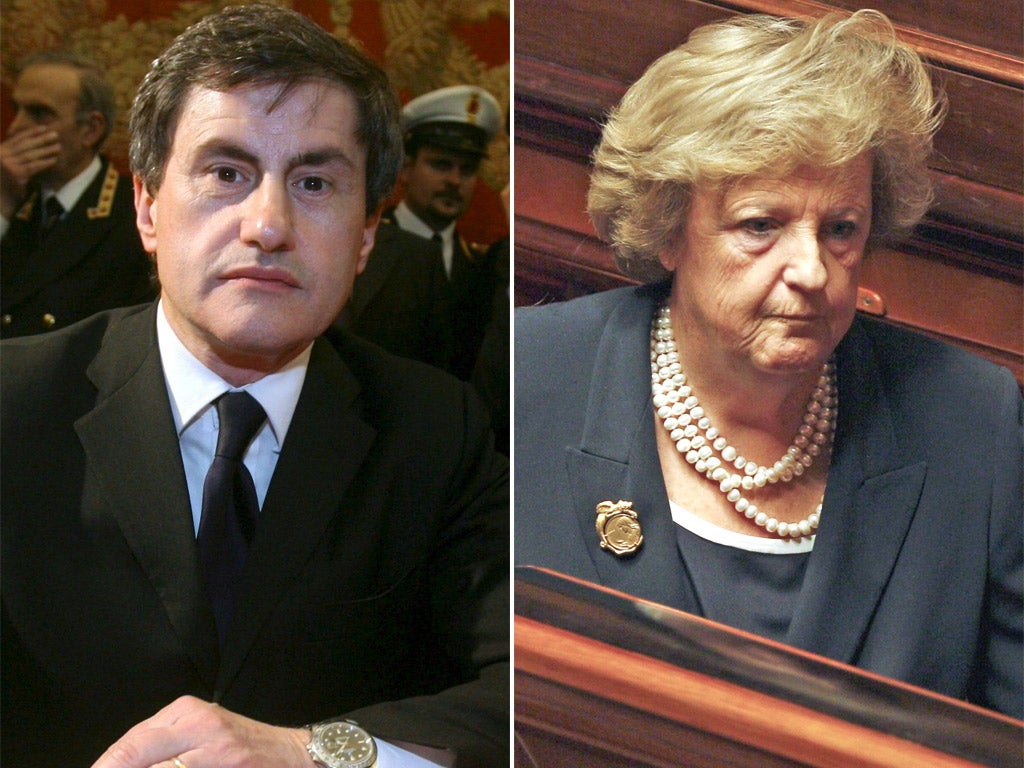Rome's mayor vow to end mob slayings as death toll swells

Just before five o'clock on Tuesday evening, to the sound of waves lapping on the nearby beach, nine gunshots rang out by a bar in Via Forni in the down-at-heel Roman suburb of Ostia.
One man lay dead; the other staggered 20 yards before collapsing in a pool of blood. He died on the way to hospital. Both victims, Francesco Antonini, 45, and Giovanni Galleoni, 42, had criminal records for drugs and weapons offences; both had links with the capital's mini-mafia, the dreaded Magliana Gang. The killings bring Rome's gangland murder total to 30 this year, prompting demands from local politicians for the new government to act urgently to halt the growing power of organised crime.
"Enough," said Rome's conservative mayor, Gianni Alemanno. "The capital must be defended from this assault by organised crime, the like of which we haven't seen since the 1970s."
The Magliana gang was a byword for brutality in the 1970s and 80s. Most notoriously it was blamed for the kidnapping and murder in 1983 of the daughter of a Vatican official. Her body was dumped in a cement mixer. She had been abducted, it is believed, at the behest of Turkish extremists, who wanted to use her as a bargaining tool to win the release of their countryman, Mehmet Ali Agca, who shot and wounded Pope John Paul II in 1981.
The group was thought to have withered away as senior members died or were jailed. Experts believe the upsurge in violence in the capital is down to younger elements in the Magliana gang fighting over the drug trade and new conflicts between the re-emerging Roman gangsters and members of southern mafia groups such as 'Nrangheta and the Camorra.
Tuesday evening's brazen double killing and the events immediately after it, in which carabinieri officers were forced to call in reinforcements to fight off hostile crowds that had formed a barrier around the victims, were an indication of the omerta, or code of silence, that obstructs police.
The feeling of lawlessness is particularly prevalent in this insalubrious seaside suburb, where the mysterious murder of writer, Pier Paolo Pasolini, took place in 1975. Less than three weeks ago, two thugs fired shots at an Egyptian greengrocer, just missing him. But it is not just in the distant suburbs of Rome that people are afraid. In July, Flavio Simmi, a 33-year-old with links to the Magliana gang, was shot nine times by an assailant on a scooter in Rome's Prati district. And it's not just mobsters and their associates who are victims. Figures show how the number of businesses in the capital damaged or torched probably as a result of mob activity is rising, as are arrests, complaints and acts of violence related to extortion rackets.
Donato Masciandaro, an economist at Milan's Bocconi University and an expert in mafia finances, said that targeting the grey economy – exemplified by the petty corruption of public officials that allowed mobsters to feed off public funds – "was the other vital aspect of fighting organised crime".
Prof Masciandaro, an academic associate of Premier Monti, said: "In the Anglo-Saxon world, things such as corruption and legality are seen in terms of black and white. In Italy they are not, but they need to be."
Join our commenting forum
Join thought-provoking conversations, follow other Independent readers and see their replies
Comments